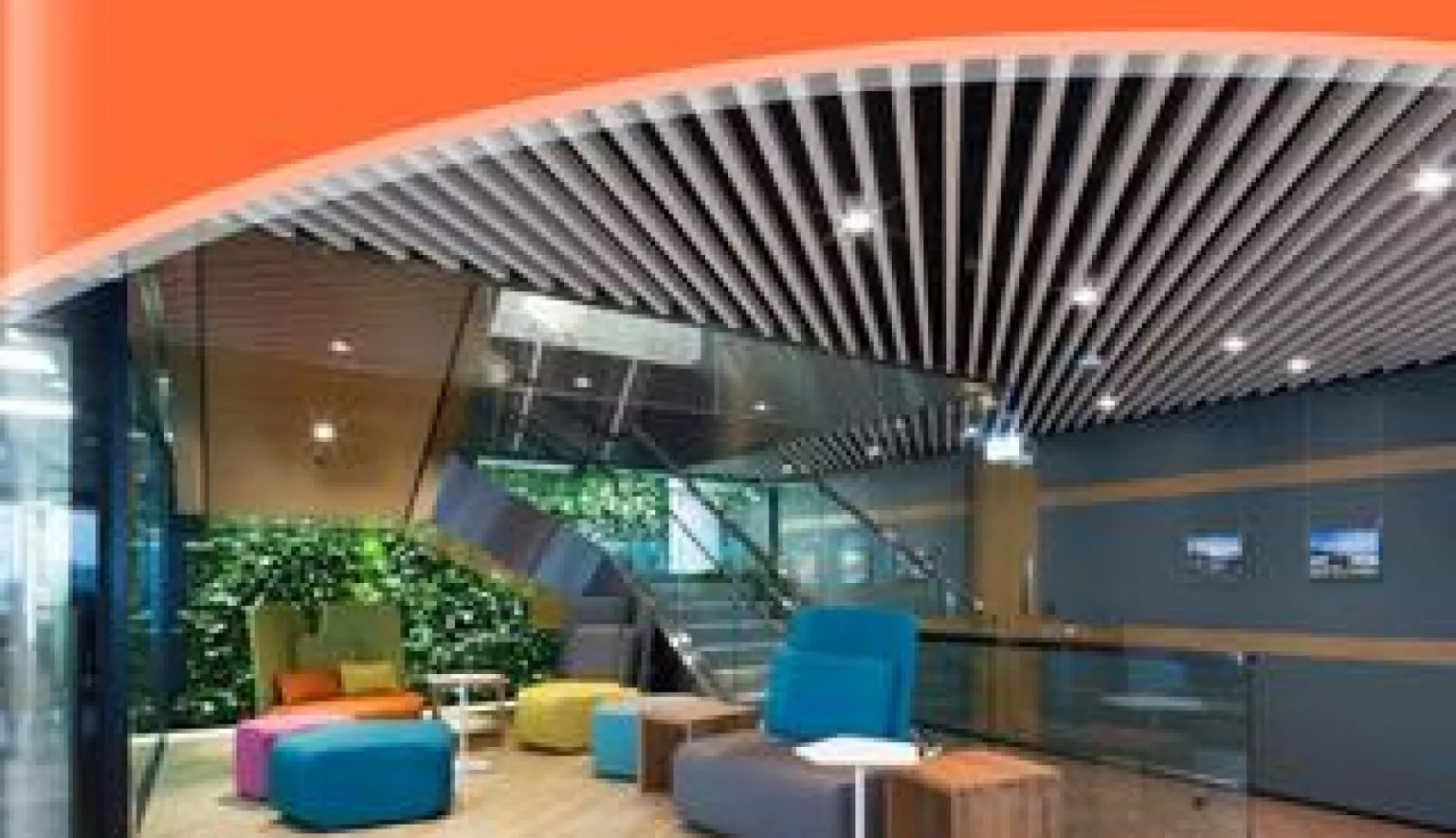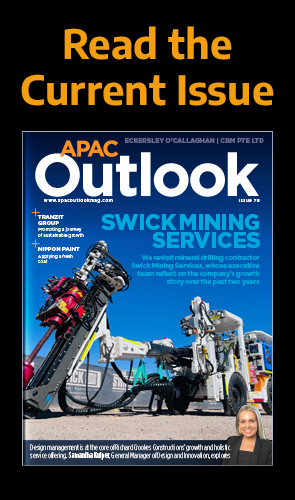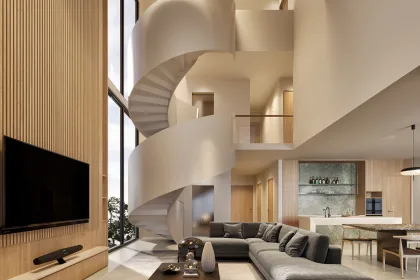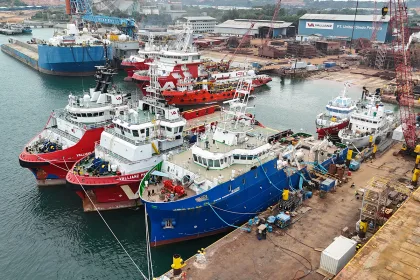Having undergone a brand refresh, Merx Construction Management is expanding its reach into new sectors and territories, all the while maintaining its unwavering commitment to a client-centred approach.
BUILT TO INSPIRE
It’s been a crazy day here. We’ve had a photoshoot for all our staff, the guys from Savills in discussing a potential project, a meeting with another client about a possible office move, a submission due tomorrow, and I’m now about to travel to Melbourne.”
William Forwood had always wanted to run his own business. In 2001 the opportunity presented itself – a fork in the road which either led to Tokyo or the establishment of a business in Singapore based around a contract to build 1,000 bus shelters for the government.
Forwood opted for the latter, and 17 years on the day to day running of Merx Construction Management remains a hive of activity.
“We have just finished a brand refresh with a new logo, website and tagline which is ‘Merx, Inspiring Spaces’,” the Group CEO adds.
“It has given us a freshness and reinvention, and this has been backed up by some exciting developments. The past year has seen a lot going on, both in terms of internal machinations and taking on new clients and projects in some new sectors and markets.”
NEW HORIZONS
Forwood identifies the transport sector, specifically aviation, as a promising avenue Merx has expanded into recently.
This involves working with clients on more technical construction types with more exacting industry regulations and standards. “We’ve picked up two new projects in Singapore and the Philippines with aviation related clients, which shows our geographical covered in Asia,” Forwood says.
“We see this as part of some exciting new growth for the Merx Group and are confident this will deliver for us over the next three to five years. We are also talking to prospective customers in Malaysia and Thailand, and see this extension into aviation as in keeping with our fresh rebranding and the full suite of services we can offer.”
The rise of coworking spaces has also led to recent opportunities for Merx, with dozens of companies setting up in the wider region. Forwood points to a handful of projects completed in Singapore, Thailand and Malaysia, explaining how the coworking developments merge the traditional office design segment with hospitality, and how companies and professional employees are working in more collaborative spaces alongside each other.
“Another key development is the continued expansion of our Hong Kong operations, which have reached their 10-year milestone,” he continues. “We have a strong team and client base in Hong Kong, completing many projects in the commercial office space.
“The Hong Kong office is also managing a project in Istanbul for a five-star hotel group, supporting them on the design and technical support for an iconic branded city hotel.”
PATCHWORK QUILT
This extended reach places Merx strongly in a market that Forwood believes is becoming increasingly competitive, with many multinational companies continuing to outsource real estate responsibilities since downsizing operations in the aftermath of the 2008 financial crisis.
“Competition is increasing,” he says, “but what is interesting is how Southeast Asia is a kind of patchwork quilt when it comes to operating in different countries and cultures.
“What we are seeing is the maturation of markets like Malaysia, where 10 years ago there was very little in the way of project management offering. Now, it is a different picture, with more mature clients wanting representation.
“What we are doing is looking at emerging markets to see if we can start a similar story. For example, Myanmar is a market we have been working in for five years and are establishing a solid client base. We are also looking at Cambodia. These are less competitive markets that are more challenging to operate in, but we are nimble enough to go in and create value.”
TRENDING
This agility will also enable Merx Construction Management to explore new technologies and practices regarding the construction and manufacturing processes involved with projects.
Modular construction, for instance, is one example which Forwood believes will become more influential in the Company’s work, especially in hotel developments where components or entire rooms can be constructed off-site. Key to this technique taking off, the CEO believes, is buy in from governments and the building up of skills so modular components can be made locally in emerging markets.
Forwood also highlights software innovation which is impacting processes across all kinds of sectors, from corporate office to residential. This is especially prevalent against a backdrop of heightening demand for sustainability and green building solutions, software which can monitor human activity and trigger the building to respond accordingly.
New software applications are also helping Merx to enhance its client-centred approach to business. A new eight-step dashboard, Merx Octagon, allows customers to track and manage all stages of a project’s life cycle to ensure quality standards and budgetary control. This provides crucial transparency at every stage, with communications and reporting tools accessible remotely for real-time updates.
“The appetite for our client contract management services has grown, and we continue to place the client at the centre of our work,” adds Forwood.
“Another example is a new service called “MerxCare” which supports the facilities management of a project once it has been completed. It is particularly helpful during the clients’ first year of occupancy to take care of any further works, modifications and ensuring everything is well maintained.”
The Merx approach to client focus and project delivery has resulted in around 45 to 50 percent of Merx’s work coming from repeat business, a trend which will serve the firm well as it enters its three-year plan covering 2019 through to 2021.
Asked what his priorities are for this next chapter in the development of Merx Construction Management, Forwood concludes: “The plan revolves around continuing to drive into the sectors, services and geographies we have identified over the past year.
“We will continue to offer end to end solutions and are always looking at new lines of services and sectors combined with evolving the ways we work internally. The foundation has been set for the next three years.”



































